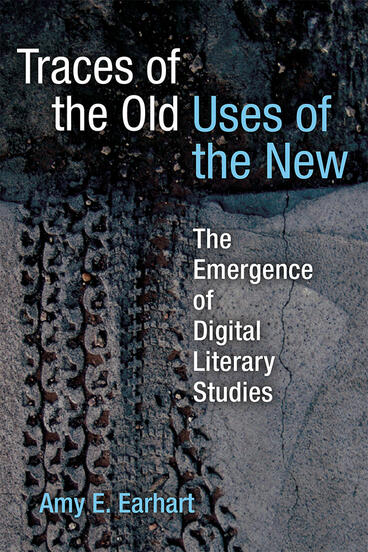Traces of the Old, Uses of the New
The Emergence of Digital Literary Studies
Mapping the history of digital literary scholarship, Earhart stakes a claim for discipline-specific histories of digital study
Description
Digital Humanities remains a contested, umbrella term covering many types of work in numerous disciplines, including literature, history, linguistics, classics, theater, performance studies, film, media studies, computer science, and information science. In Traces of the Old, Uses of the New: The Emergence of Digital Literary Studies, Amy Earhart stakes a claim for discipline-specific history of digital study as a necessary prelude to true progress in defining Digital Humanities as a shared set of interdisciplinary practices and interests.
Traces of the Old, Uses of the New focuses on twenty-five years of developments, including digital editions, digital archives, e-texts, text mining, and visualization, to situate emergent products and processes in relation to historical trends of disciplinary interest in literary study. By reexamining the roil of theoretical debates and applied practices from the last generation of work in juxtaposition with applied digital work of the same period, Earhart also seeks to expose limitations in need of alternative methods—methods that might begin to deliver on the early (but thus far unfulfilled) promise that digitizing texts allows literature scholars to ask and answer questions in new and compelling ways. In mapping the history of digital literary scholarship, Earhart also seeks to chart viable paths to its future, and in doing this work in one discipline, this book aims to inspire similar work in others.
Amy E. Earhart is Associate Professor of English at Texas A&M University.
Reviews
"In this era of digital humanities self-critique, Amy Earhart’s Traces of the Old, Uses of the New: The Emergence of Digital Literary Studies is a welcome contribution to the conversation about the underpinnings of the digital humanities, specifically its development within the context of English literary studies in the United States."
- Grant Leyton Simpson, University of Göttingen
-- Textual Cultures
News, Reviews, Interviews
Read: Review of Traces of the Old, Uses of the New in Textual Cultures Link | 4/19/2019

